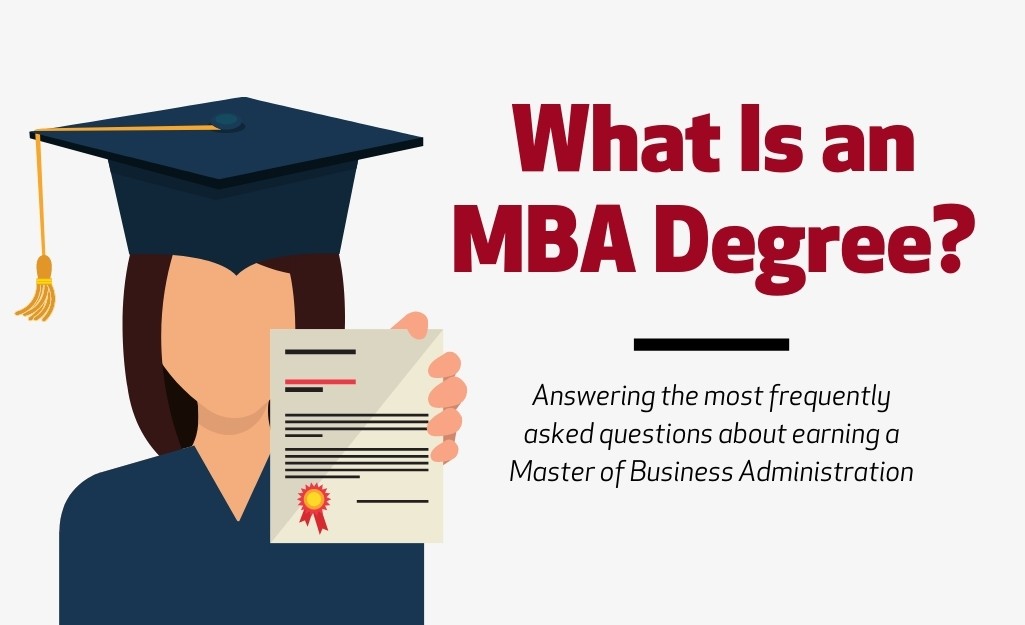In a rapidly evolving global economy, staying relevant and competitive requires more than just experience—it demands strategic thinking, adaptability, and advanced business acumen. For many professionals, an MBA (Master of Business Administration) serves as a catalyst for career transformation. Whether you’re looking to pivot into a new industry, climb the corporate ladder, launch your own venture, or lead innovation within an organization, an MBA equips you with the tools, network, and mindset to make it happen.
This article delves into the transformative power of an MBA, exploring how it can reshape your career trajectory, redefine your leadership potential, and open doors to opportunities you may have never imagined.
Key Takeaways
- An MBA provides a strategic edge in today’s competitive job market.
- It opens up leadership, entrepreneurial, and international opportunities.
- Career transitions post-MBA are common and highly achievable.
- Financially, the ROI of an MBA remains strong when calculated over the long term.
- The MBA journey fosters personal growth, leadership development, and lifelong networking.
Table of Contents
- The Purpose and Scope of an MBA
- Who Should Consider an MBA?
- Core Benefits of an MBA
- Career Paths Post-MBA
- Case Studies: Real-Life Career Transformations
- Navigating the MBA Journey: Curriculum, Internships & Networking
- Financial Investment and ROI
- The Global Perspective: International MBAs
- Challenges and Misconceptions
- FAQs (7 Key Questions)
- Conclusion
- Key Takeaways
The Purpose and Scope of an MBA
An MBA is much more than a business degree; it’s a personal and professional development experience. Typically lasting 1–2 years, MBA programs aim to mold future leaders by offering rigorous academic training in areas such as finance, marketing, strategy, operations, and leadership. But its true value often lies beyond textbooks—in the real-world applications, problem-solving experiences, and the networks it fosters.
MBA Specializations:
- Finance
- Marketing
- Entrepreneurship
- Operations Management
- Strategy
- Technology Management
- Healthcare Management
Who Should Consider an MBA?
An MBA isn’t just for aspiring CEOs or investment bankers. Today’s programs attract a diverse pool of candidates from engineering, healthcare, law, creative industries, and nonprofits.
You should consider an MBA if you:
- Are seeking a leadership or management role
- Want to pivot industries or functions
- Aim to start your own business
- Seek a salary increase or promotion
- Want to broaden your business and financial understanding
- Wish to build a strong international network
Core Benefits of an MBA

Career Advancement
Many professionals pursue an MBA to break through mid-career plateaus. The degree often positions graduates for promotions or leadership roles, especially in multinational corporations.
Skill Acquisition
MBA curricula are designed to provide a solid grounding in key business disciplines and soft skills like negotiation, teamwork, and public speaking.
Network Expansion
One of the most underappreciated yet impactful benefits of an MBA is the access to a vast alumni network, industry leaders, and global professionals.
Higher Earning Potential
According to GMAC, the median salary for MBA graduates in 2024 was 75% higher than that of bachelor’s degree holders.
Entrepreneurial Opportunities
MBA programs often offer incubators, startup labs, and mentorship from seasoned entrepreneurs, giving you a solid foundation to launch your own company.
Career Paths Post-MBA
Corporate Leadership
Positions like Product Manager, Operations Director, and General Manager are common for MBA grads.
Consulting
MBA graduates are highly sought after by top firms like McKinsey, BCG, and Bain due to their analytical and strategic thinking skills.
Finance
Roles in investment banking, private equity, and asset management often require or prefer an MBA.
Tech Industry
Companies like Google, Amazon, and Microsoft hire MBAs for product management, strategy, and operations roles.
Entrepreneurship
Many MBAs start their own businesses or become involved in early-stage startups.
Case Studies: Real-Life Career Transformations
From Engineer to Tech Executive
Priya, a mechanical engineer from India, pursued an MBA at INSEAD to transition into product management. Post-MBA, she landed a role at Google, leveraging her technical skills and newly acquired business acumen.
From Sales to CEO
Jason was a sales manager for 7 years before completing his MBA at Wharton. Within five years, he climbed the ranks to become the CEO of a mid-size tech firm.
From Finance to Social Impact
Nadia, a former investment analyst, used her MBA at HEC Paris to pivot into nonprofit management. She now leads strategy at a global NGO.
Navigating the MBA Journey

Curriculum
MBA programs are divided into core subjects and electives. The first year focuses on foundational business skills; the second year allows specialization.
Experiential Learning
- Case studies
- Capstone projects
- Global immersion programs
- Live consulting projects
Internships
Most full-time MBAs include a summer internship, often a stepping stone to full-time offers.
Networking
Events, conferences, and alumni meets provide ample opportunities to connect with industry professionals.
Financial Investment and RO
Cost of an MBA
Top-tier MBAs can cost anywhere from $70,000 to $200,000+ (tuition + living expenses).
Return on Investment
Despite the upfront costs, the long-term salary boost and career progression often outweigh the investment. Payback periods range from 2–5 years depending on post-MBA salary and geographic location.
Scholarships and Aid
Most programs offer merit-based scholarships, need-based financial aid, and access to education loans.
The Global Perspective: International MBAs
| Region | Business School | Country | Program Duration | Notable Strengths | Typical Post-MBA Outcome |
|---|---|---|---|---|---|
| Europe | INSEAD | France / Singapore | 10 months | Global cohort, consulting, fast-track | MBB Consulting, Tech PM, Strategy roles |
| London Business School (LBS) | UK | 15–21 months | Finance, luxury management, networking in Europe | Investment Banking, PE, Corporate Strategy | |
| HEC Paris | France | 16 months | Leadership, luxury, strong ROI | Corporate Development, Entrepreneurship | |
| IESE Business School | Spain | 15–19 months | Values-driven leadership, case method | General Management, Consulting | |
| IE Business School | Spain | 11–13 months | Entrepreneurship, innovation, online option | Startups, Innovation roles | |
| North America | Harvard Business School | USA | 2 years | General Management, case method | C-suite pipeline, VC, Consulting |
| Wharton (University of Pennsylvania) | USA | 2 years | Finance, analytics, healthcare management | IB, PE, Biotech Strategy | |
| Stanford GSB | USA | 2 years | Innovation, entrepreneurship, Silicon Valley proximity | Tech Startups, VC, Product Leadership | |
| Rotman School of Management | Canada | 2 years | Integrative thinking, AI and business | Finance, Tech, Policy | |
| Ivey Business School | Canada | 1 year | Case method, leadership, high ROI | Corporate Strategy, Consulting | |
| Asia-Pacific | CEIBS | China | 18 months | China business focus, bilingual, global network | China-based MNCs, Strategy Consulting |
| HKUST Business School | Hong Kong | 12–16 months | Finance, APAC business hub | Investment roles, Trade, Real Estate | |
| NUS Business School | Singapore | 17 months | Tech, Asia market access, government ties | Government, Tech Ops, Southeast Asia HQs | |
| Melbourne Business School | Australia | 1–2 years | Strategy, sustainability, APAC network | Government consulting, Energy, Retail | |
| Middle East & Africa | American University in Cairo (AUC) | Egypt | 1.5–2 years | Emerging markets, regional leadership | Family business, Nonprofit, Public sector |
| University of Cape Town GSB | South Africa | 1 year | Leadership in developing economies | NGO management, Mining, Infrastructure |
Studying abroad can offer a transformative perspective:
- Exposure to global business practices
- Cultural adaptability
- Access to international job markets
Top international MBAs include:
- INSEAD (France/Singapore)
- London Business School
- IESE (Spain)
- HEC Paris
- CEIBS (China)
The MBA Application Process: A Strategic Approach
Applying to an MBA program is as much a journey of self-discovery as it is a formal process. Here’s what it involves and how to optimize your chances.
Self-Assessment and Goal Clarity
Before diving into applications, you must clarify:
- What are your short-term and long-term career goals?
- Why do you need an MBA now?
- What differentiates you from other applicants?
Selecting the Right Programs
Not all MBA programs are equal for every candidate. Some programs are better for tech, others for finance, while some excel at entrepreneurship.
Factors to consider:
- Location and post-MBA job market
- Specializations and strengths
- Alumni network and recruiting partners
- Class size and diversity
Entrance Exams
- GMAT: Still the gold standard for many top programs.
- GRE: Increasingly accepted and offers flexibility.
- Executive Assessment: For EMBA programs.
Essays and Statement of Purpose
This is where you tell your story. Admissions committees want to understand your “why.” Tailor each application to the school’s values and highlight your leadership potential and career vision.
Letters of Recommendation
Choose recommenders who know you well and can speak to your leadership, work ethic, and potential.
Interviews
Most interviews are behavioral, often conducted by alumni or admissions officers. Some schools (like INSEAD) may require multiple rounds.
Top MBA Programs by Focus Area (2025)
Best for Consulting
- INSEAD (France/Singapore)
- Kellogg School of Management (Northwestern University)
- London Business School
Best for Finance
- The Wharton School (UPenn)
- University of Chicago Booth
- Columbia Business School
Best for Technology
- Stanford GSB
- MIT Sloan
- UC Berkeley Haas
Best for Entrepreneurship
- Babson College (Olin)
- Stanford GSB
- Harvard Business School
- Best for Social Impact/Nonprofit
- Yale School of Management
- University of Oxford – Saïd
- UC Berkeley Haas
Building Your Personal Brand During the MBA
Your MBA years are not just about academics—they’re about evolving your identity in the marketplace. Personal branding is crucial.
LinkedIn Optimization
Your profile should reflect your evolving goals, highlight leadership stories, and engage with industry trends.
Thought Leadership
Writing articles, speaking at events, or starting a podcast can elevate your visibility.
Networking
The people you meet—peers, professors, guest speakers—can be mentors, collaborators, or future employers.
Leveraging the Alumni Network
Attend alumni events and connect strategically with individuals in your desired industry or company.
Long-Term Career Impact of an MBA
Career Agility
MBA graduates often find themselves better equipped to navigate economic shifts, automation, and industry disruptions.
Leadership Readiness
Courses on organizational behavior, strategy, and negotiation prepare students for C-suite responsibilities.
Global Mobility
Many MBAs work internationally after graduation or take on global assignments, thanks to exposure to multicultural cohorts and global business perspectives.
Alumni Power
Alumni connections often lead to board positions, partnerships, investments, and mentorship decades after graduation.
The Evolution of the MBA: Trends in 2025 and Beyond
Digital MBAs and Hybrid Learning
Institutions like Carnegie Mellon Tepper and IE Business School offer top-ranked online or hybrid options for flexibility.
Sustainability and ESG Focus
Business ethics, environmental stewardship, and social responsibility are increasingly integral to curricula.
AI and Data Analytics Integration
More programs are weaving in AI, machine learning, and data-driven decision-making to stay industry-relevant.
Diversity and Inclusion
There’s growing emphasis on inclusive leadership, gender equity, and international perspectives.
Pitfalls to Avoid on the MBA Journey
Choosing the wrong program fit
Don’t just chase rankings—choose the environment and curriculum that align with your goals.
Poor time management
The MBA experience is intense. Juggling academics, recruitment, and networking is a challenge without strong organization skills.
Overlooking the power of networking
Grades matter, but relationships drive long-term value.
Unrealistic expectations
The MBA isn’t a magic bullet. Success post-MBA still depends on your drive, adaptability, and continuous learning.
Success Metrics: Measuring the Impact of Your MBA
How do you know your MBA was truly transformational? Consider these:
- Career Growth: Promotions, title changes, new industry entry
- Salary Increase: Often a 50–100% bump post-graduation
- Network Utilization: How often you connect with classmates/alumni
- Startup Launch: If entrepreneurship was your goal
- Work-Life Balance: Improved career satisfaction and flexibility
Would you like me to continue with Part 3, which can include:
- Detailed MBA graduate salaries by region and industry
- Breakdown of top EMBA and part-time MBA programs
- Testimonials and quotes from alumni
- Strategies for maximizing ROI after graduation
- The future of business education beyond 2030
Challenges and Misconceptions
An MBA Guarantees a Job
It enhances your profile but doesn’t eliminate the need for effort in job hunting.
You Need a Business Background
MBAs are designed for non-business grads too.
Time and Stress
MBA programs are intensive. Balancing academics, recruiting, networking, and personal life requires resilience.
Also Read: Best Affordable MBA Programs with Strong Career Outcomes
Conclusion
An MBA is more than just a degree—it’s a transformative experience that can significantly alter your career path. Whether you’re aiming to lead, innovate, or create, the knowledge, skills, and networks gained through an MBA can be the foundation upon which your professional aspirations are built. While the journey is demanding, the rewards—both personal and professional—are profound.
FAQs
1. Is an MBA worth it in 2025?
Yes, especially with the evolving business landscape requiring adaptive, strategic leaders. The ROI remains strong, particularly for top-tier programs.
2. What’s the best age to pursue an MBA?
Typically between 25 and 32, though executive MBAs cater to professionals with more experience.
3. Can I do an MBA without quitting my job?
Yes. Part-time, online, and executive MBAs are designed for working professionals.
4. How important is work experience for an MBA?
Most full-time MBAs require 2–5 years of experience, though some programs accept fresh graduates.
5. Which MBA specialization pays the most?
Finance, Strategy, and Tech-related specializations often lead to higher-paying roles.
6. Do I need to take the GMAT or GRE?
Most top programs require either, though some have made them optional or waived them entirely in recent years.
7. Can an MBA help with immigration?
Yes. Graduating from a business school in countries like the U.S., Canada, or Australia can facilitate work visas and permanent residency options.









